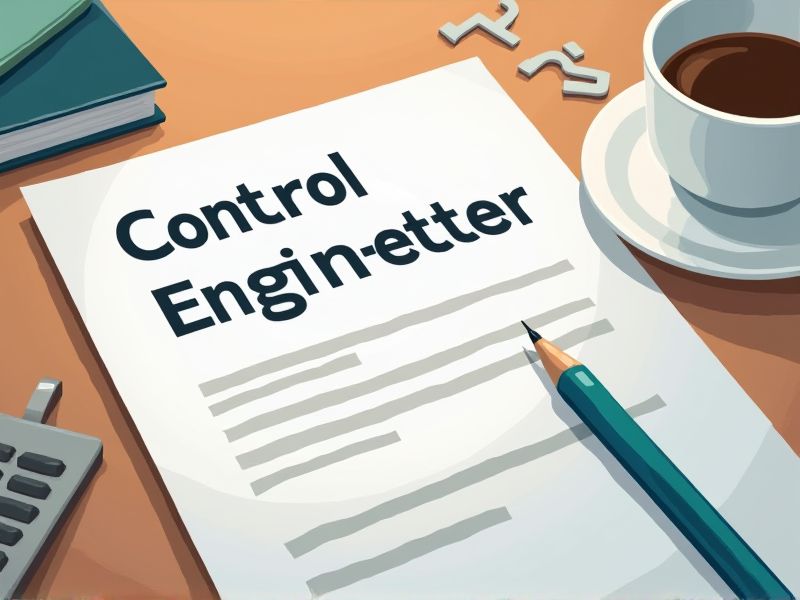
Control systems engineers play a crucial role in designing and maintaining automated systems, often in high-stakes industries like aerospace, manufacturing, and energy. Acquiring specific certifications ensures that these professionals are equipped with standardized knowledge and skills, enhancing system reliability and safety. Certifications also signal to employers that engineers meet industry benchmarks, which can boost career prospects and professional credibility. Here are some important certifications you may need as a Control Systems Engineer.
Certified Control Systems Technician (CCST)
Control Systems Engineers rely on CCSTs to ensure accurate installation and maintenance of instrumentation, which minimizes system downtime and enhances reliability. Certified technicians provide crucial support in configuring and troubleshooting control systems, which optimizes operational efficiency. The presence of CCSTs allows engineers to concentrate on high-level system design and development. Employing CCSTs ensures compliance with industry standards and safety protocols, thus reducing the risk of costly errors.
Certified Automation Professional (CAP)
The Certified Automation Professional (CAP) credential is essential for Control Systems Engineers because it verifies a standardized level of expertise and competency in automation. This certification helps employers recognize professionals who possess the necessary skills to design, manage, and maintain complex control systems. By achieving CAP certification, engineers demonstrate a commitment to their professional development and adherence to industry standards. Companies often require or prefer CAP-certified individuals to ensure consistent quality and reliability in automation projects.
Professional Engineer (PE) License
Obtaining a Professional Engineer (PE) License for a Control Systems Engineer signifies an acknowledged level of competence and expertise, which can enhance job prospects and career advancement. The license is required by law for engineers who wish to provide engineering services to the public, ensuring that safety and regulatory standards are met. Many employers prefer or require a PE license for higher-level positions because it guarantees a recognized standard of professionalism and capability. The PE license fosters trust with clients and stakeholders, affirming that projects adhere to essential technical and safety standards.
ISA Certified Control Systems Engineer (ISA CCSE)
Obtaining the ISA Certified Control Systems Engineer (CCSE) credential serves as a formal validation of a professional's expertise in designing and maintaining complex automated systems. It enhances an engineer's credibility in the industry, which can lead to better career opportunities and increased trust from employers and clients. The certification provides a standardized benchmark for assessing technical skills, ensuring consistency in engineering practices across various industries. Having ISA CCSE helps in staying updated with the latest technological advancements, promoting continuous professional development.
Siemens Mechatronic Systems Certification
Siemens Mechatronic Systems Certification equips Control Systems Engineers with advanced skills in designing integrated automation solutions, enhancing their proficiency in managing complex systems. The certification provides a deep understanding of mechatronic principles, which is critical for developing efficient and reliable industrial control solutions. Industry demand for certified professionals often leads to increased job opportunities and career advancement. Certified engineers tend to implement solutions faster and more accurately, reducing downtime and increasing productivity in automated environments.
PLC Programming Certification (e.g., Rockwell Automation)
Attaining a PLC programming certification, such as from Rockwell Automation, establishes a control systems engineer's proficiency with widely-used industrial automation systems. By acquiring this certification, engineers generally enhance their ability to design, implement, and troubleshoot complex control systems effectively. Employers often place value on certified professionals, as it reduces downtime and increases productivity within industrial processes. Having a recognized certification might offer a competitive edge in the job market and facilitate career advancement opportunities.
ABB Certified Automation Specialist
A Control Systems Engineer benefits from being an ABB Certified Automation Specialist due to the comprehensive knowledge it provides on ABB's automation technologies. Certification ensures the engineer is adept at implementing and troubleshooting ABB systems, which can increase operational efficiency and reduce downtime. The credential enhances credibility and trust with employers and clients, potentially leading to better career opportunities. With specialized skills in ABB technologies, the engineer is equipped to drive innovations and optimize processes effectively within industrial environments.
Lean Six Sigma Green Belt
Lean Six Sigma Green Belt equips a Control Systems Engineer with skills to identify inefficiencies and streamline processes. Enhanced process improvement techniques reduce waste and optimize system performance. Data-driven methodologies lead to more reliable and consistent system outputs. This certification can contribute to higher project success rates and cost savings.
Certified Systems Engineering Professional (CSEP)
Control systems engineers benefit from the Certified Systems Engineering Professional (CSEP) designation because it validates their expertise and ensures they meet industry standards. Achieving CSEP status often leads to enhanced credibility, which can result in greater trust from employers or clients. The certification process requires a comprehensive understanding of systems engineering principles, which equips engineers with valuable skills that improve project outcomes. Holding a CSEP can increase job prospects and career advancement opportunities, as many organizations prioritize certified professionals in their hiring processes.
Project Management Professional (PMP)
Earning a PMP certification equips Control Systems Engineers with essential project management skills, enhancing their ability to manage complex engineering projects efficiently. The certification improves their proficiency in resource allocation, a crucial factor in maintaining project timelines and budget constraints. PMP knowledge strengthens communication and leadership abilities, fostering better collaboration with multidisciplinary teams. Effective risk assessment and management taught during PMP training result in more predictable project outcomes.
Summary
When you pursue certifications as a Control Systems Engineer, you enhance your technical proficiency and industry credibility. This often leads to increased job opportunities and potential salary growth due to recognized expertise. Employers may prioritize you for complex projects, reflecting trust in your certified skills. Additionally, certification can expand your professional network, facilitating collaboration and career advancement.
